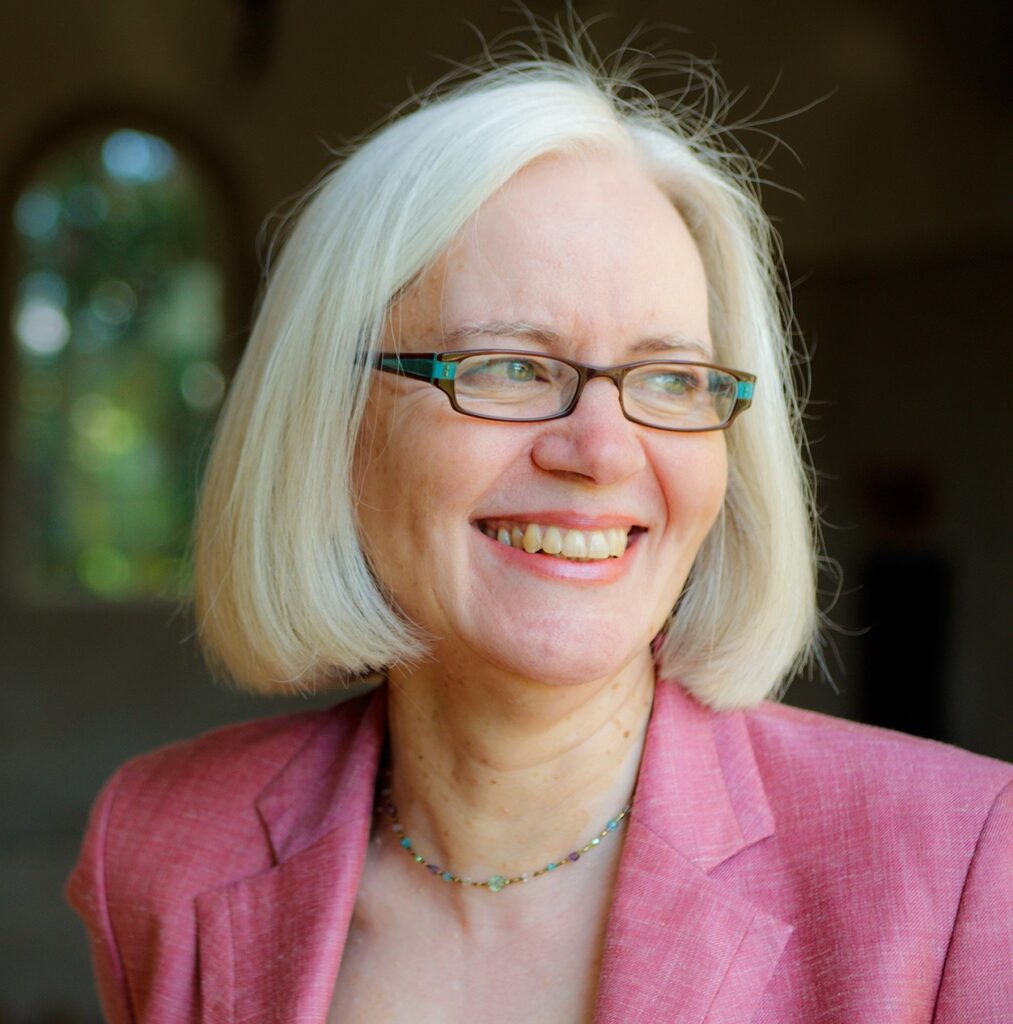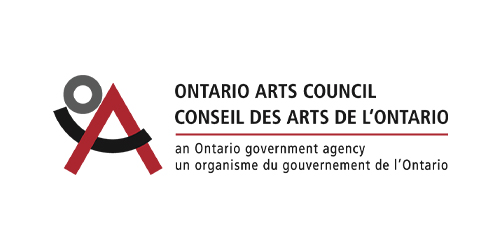by Gail O’Day
In his book on Bach’s St John Passion, [scholar] Michael Marissen wrote, “to interpret the St John Passion properly, we need to concern ourselves primarily not with what John’s gospel means, but with what it apparently has been taken to mean in Bach’s music.” Yet since it is an impression of and reaction to the Gospel of John that the St John Passion leaves with most of its listeners, it seems to me that it is impossible not to concern ourselves equally with what the Gospel of John means, and with the meaning that Bach made from it.
What has struck me in reading through the libretto and score of the St John Passion is how Bach’s theology leads his interpretation of John, and not the other way around. Bach is a powerful reader of texts, and a master at matching words and music in order to call whole new worlds of meaning and emotions into being, but for Bach, the Gospel of John is the raw material upon which he works his musical skills, and the particular perspective of the Gospel text is not one of this main concerns. The title of this piece to the contrary, when one hears the words of the St John Passion, the text of the Gospel of John is but one of many texts on which Bach draws. The recitative and choruses rehearse the text of John 18–19, but the chorales, for example, where Bach’s own theological orientation come out and where the emotive focus seems to lie for Bach, are not from the Gospel of John, nor are any of the arias. And these arias and chorales, without exception, represent the perspective of Lutheran piety that was so formative for Bach, but is theological light years away from anything found in John. The Gospel of John is put in the service of Bach’s own theological commitments.
Bach is a powerful reader of texts, and a master at matching words and music in order to call whole new worlds of meaning and emotions into being…
[…] For John, there is only one answer to the question, “Who is responsible for the death of Jesus?”—Jesus himself is responsible for his death. He freely chooses to give up his life—no one takes it from him. And the drama that unfolds in John, among Pilate, Jesus, and the Jews, or more specifically, “the chief priests and their attendants,” is a drama about the political expediency and cost of maintaining peace in first-century Judea. It is the “chief priests and the police attendants” who shout “Crucify him, crucify him” in John(19:6), with no mention of the crowds; when Jesus says to Pilate, “the one who handed me over to you is guilty of a greater sin,” the pronoun “one” is singular—and nothing in Greek would support reading this pronoun as a collective noun—and most certainly refers to Judas and his lack of faith. The whole notion of identifying who is responsible for Jesus’ death makes no sense for John—and in the Gospel, disputes and disagreements with “the Jews” are about the meaning of Jesus’ life, not responsibility for his death.
Yet here is the great irony of the St John Passion and debates surrounding its performance. The Gospel of John probably attaches less culpability than any other Gospel to “the Jews” [oi Ioudaioi] as a collective, for the death of Jesus. Pilate and the political expediency of maintaining peace in first-century Judea are of much more interest to John. But it is the New Testament document that has inspired the worst and most treacherous legacy of Christian anti-Judaism and anti-Semitism. The debate gets framed wrong—John’s “contribution” to Christian anti-Semitism does not revolve around questions of responsibility for the death of Jesus (the infamous lines on that score come from Matthew), but rather more basically, around its portrait of “the Jews,” or oi Ioudaioi, in general.
And here is where what John says has to enter into how 21st-century listeners listen to John as mediated through Bach. The Gospel of John is a first-century Jewish Christian document, written shortly after the destruction of the Jerusalem temple by Rome in 70 C.E. Without the temple, Judaism was forced to reconstitute itself around a different centre, and that centre became the Jewish scriptures. The synagogues therefore took on more importance, because they were the sites where scripture was taught and preached. Moreover, those Jews who professed faith in Jesus also took the scriptures to be of the utmost importance, because they understood Jesus to be the fulfillment of God’s promises as made known to God’s people through Scripture. The conflict was joined therefore around the question of who could lay claim to God’s promises and to the status of God’s people. This conflict is apparent in the adversarial language of Matthew 23, for example, but the group of Jewish Christians who seemed to have engaged this conflict most intensely in their day-to-day lives was the community of Christians for whom the Fourth Gospel was written.
The extent of this conflict as a historical reality—i.e. whether some Jewish Christians were cast out of the synagogue as the Gospel maintains—is debated, but there is no debate that in the Gospel of John, oi Ioudaioi is the group from whom followers of Jesus differentiate themselves. […] The virulent anti-Jewish language of John was forged from the decision to form community identity in terms of differentiating from the other with whom one had the most in common and therefore the community with whom there was the most at stake.
What is the significance of this historical context for the contemporary reader of John and listener of Bach? The realities of first-century Judean political intrigue, of Pilate’s manipulation of all involved, of struggles for community self-definition, have no place in Bach’s Lutheran piety, but have a prominent place in John’s telling of the Jesus story. Bach’s emotions and gratitude for his experience of the grace of God in the Passion of Jesus is strikingly ahistorical. Does knowing the historical context help us listen more fully to any interpretation of an ancient document, musical or otherwise? Yes. And if what we are about today is the aesthetic enhancement of our experience of Bach’s St John Passion, then such awareness might be enough.
Bach’s emotions and gratitude for his experience of the grace of God in the Passion of Jesus is strikingly ahistorical.
But that is not what we are about, and so it is not enough. Because while historical awareness may make sense of first-century Judea, we cannot pretend that this first-century document has not generated tragic consequences, no matter how unintended they might be by its original author. Bach’s piece is only one example of how easily John’s words can be uprooted from one historical setting and used to a variety of ends in different settings. John’s language about “the Jews” has no meaning apart from its original context, and even in this context, the strategy that John chooses to articulate his community’s struggle for self-definition is deplorable.
The way in which the Jewish Christian community of the Fourth Gospel grounded its identity was to reject those with whom it was in disagreement. The social intent that drives the invective of John is not an isolated phenomenon. On the contrary, the rigidity of community identification it reflects and the language of hate that often accompanies community self-definition are evident across the globe in racial, ethnic, and religious conflicts.
Yet to translate “the Jews” out of the St John Passion—or to find translations of the Gospel of John that reflect the complexities of John’s use of the term oi Ioudaioi—creates its own problems, by rendering first-century Jews invisible, by privileging universalism over historical particularities, and ironically, by exonerating centuries of Christian anti-Judaism by taking Christians off the hook for the ethical complexities of their history.
To understand how this first-century community of the Gospel of John arrived where it did is not to offer excuse, because on the contrary, one longs for this writer to have chosen another option for self-definition in his own multi-religious world. We are here to ask ourselves, in the face of this powerful religious text and this powerful musical piece, can we construct a future in which we name the reality and the cost of the choices made by the Gospel of John, and choose another path? Can we learn to articulate and trust our identity without declaring against other groups or portraying them as lesser than ourselves? If the answer is no, then we have nothing about which to sing. But if the answer is yes, then let the heavenly choruses begin.
This essay is extracted from a paper given at an interdisciplinary symposium held at Wake forest University in 2011, titled John’s Passion/Bach’s Passion: Religion, Performance, and Culture. We are grateful to Michelle Voss Roberts, Professor of Theology at Emmanuel College, University of Toronto, for arranging permission for us to print the essay.
Gail O’Day (1954–2018) was Dean and Professor of New Testament and Preaching at the Wake Forest University School of Divinity (Winston-Salem, NC). Her scholarly research focused on the Gospel of John, the Bible and preaching, and the history of biblical interpretation. Publications include the commentary on the Gospel of John in The New Interpreters Bible (1996), and Preaching the Revised Common Lectionary: A Guide (Abingdon Press, 2007). She was editor or co-editor of several volumes, including the Oxford Access Bible(Revised Edition Oxford University Press 2011), and the Theological Bible Commentary (Westminster John Knox Press, 2009). She was the editor of the Journal of Biblical Literature from 1999–2006 and General Editor of the Society of Biblical Literature book series, Early Christianity and its Literature, from 2009–2014. Gail O’Day was an ordained minister in the United Church of Christ.

Thank You to our Generous Donors
Tafelmusik is deeply grateful to our generous donors who have continued to support us through this challenging time. Your support has inspired us to remain strong and to deliver joy to our community through our music, and will enable us to persevere until we can once again perform live for you, our cherished patrons. Thank you for believing in Tafelmusik and in the power and beauty of music.
If you would like to make a gift, please click here or contact us at donations@tafelmusik.org.
Thank you to our government sponsors




